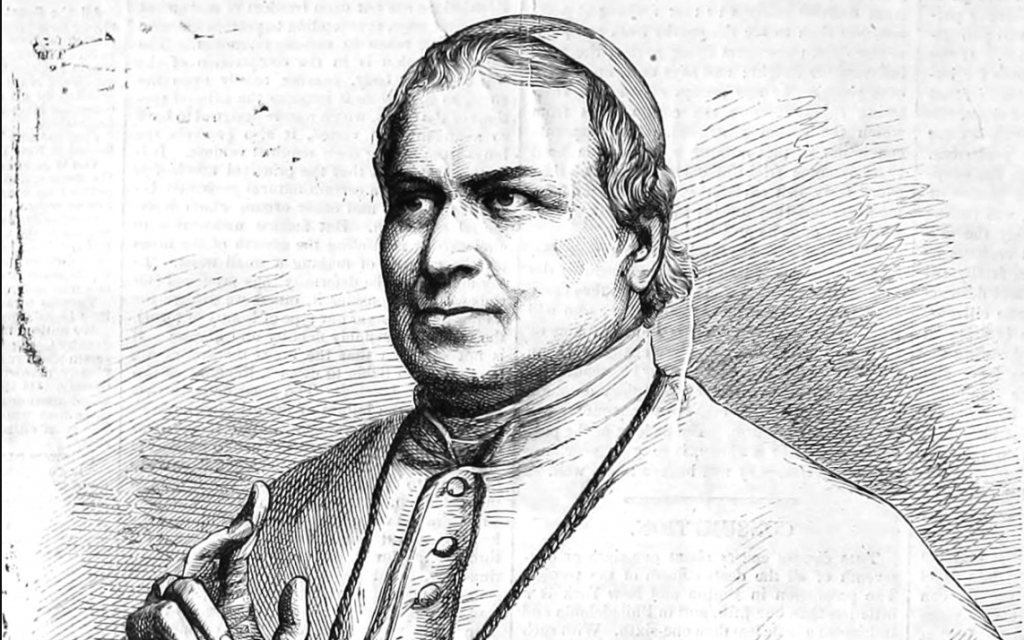Don’t miss Nathaniel Peter’s continuation of this discussion, “Grace Builds Upon and Doesn’t Destroy Nature: On First Things, Baptism, and the Natural Family.”
As readers of Public Discourse know, First Things has been moving towards statism in economics, with R.R. Reno, the journal’s editor-in-chief, coming out against capitalism and in favor of more government control of the economy. Now, there are many unlovely things about statism, but one of the worst is that, in practice if not in theory, it is thoroughly unprincipled. It quickly devolves into the position that the state should promote whatever the statist thinks good and suppress whatever the statist thinks bad. Thus, Reno recently advocated taxing university endowments, not on the basis of any principles of fairness or efficiency in taxation, but because he thinks elite universities with big endowments are malign forces in society. What he would say to someone who thinks churches are malign forces and should also be taxed—other than, “That’s different: You’re wrong, I’m right!”—is a mystery. Thus, even when a statist believes in some principles limiting the state’s power, these often get lost in practice. The state’s power is absolute, and since absolute power corrupts absolutely, statists always end by using the state’s power corruptly.
I mention this because First Things took its statism to new but depressingly predictable extremes this week, with the Roman Catholic religion getting swept up in the corruption. In the February issue of the journal, Romanus Cessario, O.P., a professor of theology at St. John’s Seminary, reviews the recently published memoirs of Edgardo Mortara. As many people know, Mortara was born in 1851 to a Jewish family in Bologna, which was then within the Papal States. When as an infant he became gravely ill, a Catholic servant employed by the Mortara family secretly baptized him. Mortara recovered, but six years later the story emerged, and Pope Pius IX ordered the young Mortara removed from the custody of his parents so that he could receive a Catholic education. International protests followed, but Pius never wavered, and he even took the young Mortara as his ward. Mortara, for his part, grew up as a devout Catholic, became a priest, and lived on till 1940. According to his memoirs, Mortara thought Pius had done the right thing, and he was deeply grateful to him, even writing that he thought Pius should be canonized a saint. Needless to say, many other people have taken a very different view, arguing that the Church basically kidnapped Mortara in flagrant violation of his and his parents’ rights.
Cessario, however, thinks Pius got it right. To those of us who view the episode as an outrageous abuse of state power, Cessario has a surprising answer. He says that, “in order to forestall wrong and unwarranted interpretations . . . Catholics and other people of good will must acquire a right understanding of baptism and its effects,” and he goes on to rehearse some key Catholic doctrines about baptism. Cessario emphasizes that baptism imparts an indelible “sacramental character,” which Aquinas says is a spiritual power by which the baptized individual is able to participate in Christ’s sacramental worship of the Father. His point is that, once baptized, the young Mortara was, theologically, a Catholic and always would be a Catholic, and so the Church owed him a Catholic upbringing and education.
Start your day with Public Discourse
Sign up and get our daily essays sent straight to your inbox.Now, as an educated Catholic layman, I actually knew all this before reading it in Cessario. I just never perceived a logical connection between the indelibility of the sacramental character conferred in baptism and the claimed right of the Papal States to forcibly transfer custody of Mortara from his parents to Pius IX. Moreover, on this crucial point, Cessario is no help at all, for he apparently thinks the connection is self-evident. He feels for the boy and his parents, but “these articles of faith” about the indelibility of the sacramental character “bound Pius to give Mortara a Catholic upbringing that his parents could not.”
To see how Cessario has gone wrong here, let’s begin by clearing away some irrelevant side issues. First, Cessario goes to great length to show that the Catholic servant, fearing for Mortara’s life, was right to baptize him. I don’t see how the liceity of the baptism matters, but let us assume, for the sake of argument, that the servant did right in baptizing the child. This forestalls any argument against what Pius did on the basis of the supposed wrongness of what the servant did and keeps the focus where it should be—on the just limits of state power.
Second, with apologies to my Jewish readers, who naturally (and correctly) see the Mortara case as yet another depredation by Christians against Jews, we should abstract from the Jewishness of the Mortaras. The operative assumption in Cessario’s argument is not that the child’s parents were Jewish but that they could not reasonably be expected to give the child a Catholic upbringing and education. Hence, if it is right to terminate the custodial rights of Jewish parents if their child somehow gets baptized, it will be right to do the same to parents who are pagans, Muslims, Hindus, Buddhists, atheists, or—it certainly seems—Protestants and even fallen-away Catholics. I don’t deny that, as a historical matter, the Mortaras were treated so badly because they were Jewish—of course, they were. I mean only that Cessario’s argument to justify Pius’s actions in the case would, by its terms, apply to many parents other than Jewish ones, and it helps in keeping the analysis clear to think in the broader terms in which that argument is cast.
Third, the combination of the spiritual and temporal power under Pius in the Papal States can easily cause confusion, but it is irrelevant to the key moral issues in this case. Those issues concern the limits of state power. If Pius was right to order his gendarmes to take Mortara from his family and deliver him to Church officials, then such a transfer of custodial rights was within the legitimate power of the state, and a similar conclusion should follow in similar circumstances even in states in which the temporal and spiritual powers are not combined as they were in the Papal States. For example, if in the United States today, there was a Jewish (or purely secular “None”) family with a child who, contrary to the parents’ wishes, had been baptized, then the Church should be entitled to appear in court and obtain an order terminating the parents’ custodial rights and transferring custody of the child to the Church or some of its officials to ensure that the child be raised as a Catholic.
We can now frame the crucial issue: is it a legitimate use of the power of the state to transfer custody of a child from his natural, non-Catholic parents to the Catholic Church merely because the child had been baptized? Putting the question this way shows why Cessario’s attempt at justifying what Pius did has to fail: at best, Cessario has shown that, assuming the truth of the Catholic faith, Mortara had a supernatural, theological right to a Catholic upbringing and education, with a correlative duty in the Church (particularly the pope), to provide him one. That may well be so, but a moral claim (much less a supernatural moral claim) does not, without more, support a moral right in the state to enforce that claim. The order of morality is one thing; the order of morally permissible state action is another. As Aquinas says, human law does not suppress every vicious act nor does it command every virtuous one. The mere fact that Mortara had a right to a Catholic upbringing and Pius had an obligation to provide him one does not, without more, imply that it was morally permissible for the state to use force to ensure that this right and duty be fulfilled.
This is exactly what the statist always misses: that there are moral principles applicable to the state governing its conduct. The statist impulse is to ignore these principles and act as if the state should bring about whatever is good and right and suppress whatever is wrong and bad. To be fair to the statist, this impulse is often well-meaning, but in morals good intentions are not enough; the means chosen to effect those intentions must be good too. This applies to the state no less than to individuals.
The point is clear from examples, even ones from the order of purely natural morality. If I am rich and meet someone who is poor, I may have a moral obligation to give him some of my money, but this does not imply that the state is morally permitted to take my property and give it to him. Similarly, if my brother wrongs me and is truly sorry, I have a moral obligation to forgive him; if I fail to do so, however, the state has no right to compel me to do so by force. Examples from the order of supernatural morality (as understood in Catholic theology) are even clearer. Everyone has an obligation to seek baptism and to worship the Holy Trinity, but it is nevertheless wrong for the state to punish those who choose not to do these things. Nor are such conclusions at all surprising: we should all, of course, try to get others to do what morality (including supernatural morality) requires of them, but this does not imply that all means whatever are licit when pursuing this noble end. For private persons, the means of rational persuasion are always permissible, but force almost always is not (self-defense is an exception). Although the state may resort to force in many cases in which private persons may not (for instance, in punishing evildoers), even the state may not use force willy-nilly in pursuing good ends.
But to return to the Mortara case, the question has become whether the state’s use of force to provide young Mortara with a Catholic upbringing and education contrary to his parents’ wishes exceeds the permissible scope of state action. It should be apparent that it does. For one thing, if ensuring that a baptized child receives a Catholic upbringing justifies the state in transferring custody of the child to the Church, then the Catholic Church in America would have a good claim to custodial rights to the millions of baptized children in America whose parents are not practicing Catholics, which is absurd. More generally, as Aquinas says, the law of the state is aimed at the great mass of human beings and seeks to get them to do, not what perfectly virtuous people would do, but what people generally may in fact be reasonably expected to do, especially in terms of avoiding harm to others so that human society may continue. This is why it is especially unreasonable to use the power of the state to enforce supernatural moral norms such as the obligation to raise a baptized child as a Catholic, for supernatural obligations exceed natural ones and so are not the kind of obligations that the great mass of people may be expected to fulfill. If, in addition, many people in the particular society do not recognize the supernatural norm in question because they do not share the Catholic faith, the case against the use of force by the state becomes conclusive.
Which, given the facts of the Mortara case, should have been virtually self-evident. Can anyone seriously imagine St. Peter breaking into the house of Caiaphas late one night to make off with the man’s youngest son in order to raise the lad as a Christian because the child had somehow gotten baptized? It’s preposterous. Terminating the parental rights of non-Catholic parents of a baptized child is the kind of thing that only begins to seem reasonable after a good deal of conditioning. In Pius’s case, that conditioning resulted from centuries of combining the temporal and spiritual powers in the Papal States, and no doubt it was greatly facilitated by centuries of Christians mistreating Jews. Although irrelevant to the objective moral quality of his actions, this conditioning should inform our judgments of Pius as a man. Thus, although I have no doubt that Pius was wrong to remove Mortara from his parents, I also have no doubt that Pius subjectively believed he was doing right and that the errors in his reasoning were ones that even a very good man, placed in his historical circumstances, could have made.
But the excuses available to Pius are not available to Cessario and the editors of First Things. They ought to know better than to drag up this old nonsense, and they deserve to be roundly vituperated for doing so much damage to the good relations Richard John Neuhaus and his many Jewish collaborators at First Things were able to build over so many years. What could possibly explain such an abrupt and bizarre departure from sound moral principles? I’ve already said: statism corrupts. It is bad enough when First Things goes on a tear against capitalism; happily, no one really cares what the editors of that journal think about economic policy. Many people do care—and care a lot—what the editors of First Things think about Christian-Jewish relations, and this time the galloping statism of First Things is doing great damage in the real world. I call on R.R. Reno to disavow the position Cessario takes on the Mortara case and to reaffirm the journal’s historical commitment to the freedom of religion as understood in liberal states.














